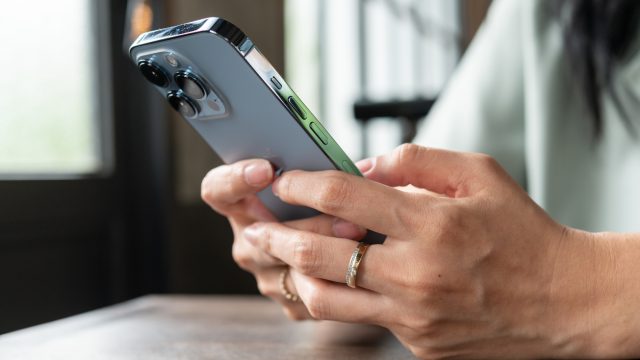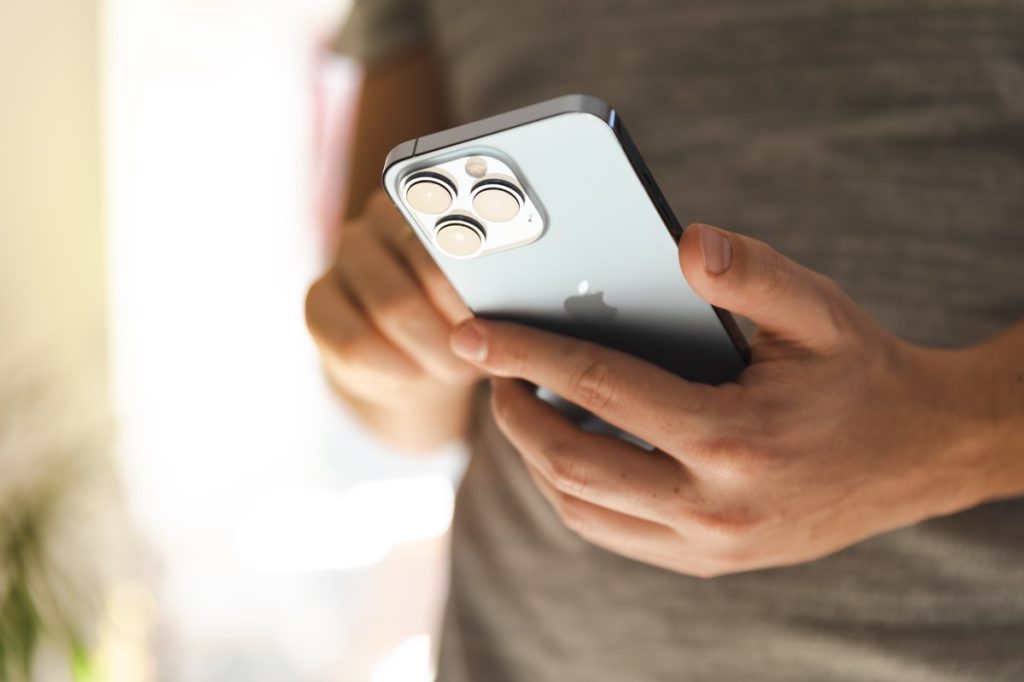Apple Warns All iPhone and iPad Users to Update Devices Immediately—Here’s Why

The smartphones in our pockets and tablets in our bags have become so capable that we can now use them to do practically anything. Even at their most basic, the devices can make our everyday lives easier by acting as a stand-in for our credit cards or sending money to a friend when splitting a bill. Some recent advances can go so far as to call for help for people in need without ever having to touch a button. But the increased dependence on them has also come with greater vulnerability. And now, Apple is warning all iPhone and iPad users to update their devices immediately. Read on to learn more about the latest security threat.
READ THIS NEXT: Never Charge Your Android Phone This Way, Experts Say.
Apple just issued a new warning for iPhone and iPad users to update their devices.

People can go to great lengths to take care of their smartphones and tablets. But besides making sure the devices are in peak physical condition, it’s also essential for users to stay on top of the software that keeps them functioning. Now, Apple is urging users to get the latest version of its operating system for many of its devices, MacRumors reports.
On Feb. 13, the company released updates for its iOS and iPadOS operating systems to version 16.3.1. The move comes as the first significant software fix since Apple pushed iOS 16.3 less than a month ago. But while the latest update doesn’t come with the same exciting addition of new features and capabilities as its predecessor, it’s still vitally important to users.
Users who don’t download the latest software could be left vulnerable to serious security issues.

The latest iOS update comes in response to what’s known as a “zero-day” vulnerability in the software that can leave iPhone and iPad users open to attacks from hackers and nefarious actors, Lifehacker reports. Specifically, a security flaw in the outdated operating system’s WebKit can be taken advantage of if a user clicks on a malicious link.
“Processing maliciously crafted web content may lead to arbitrary code execution. Apple is aware of a report that this issue may have been actively exploited,” the company wrote on its support page touting the latest software update.
RELATED: For more up-to-date information, sign up for our daily newsletter.
Here’s how you can ensure your iPhone or iPad is safe and up-to-date.

Many users opt to automatically update their devices with overnight downloads they rarely even notice. However, since this can sometimes take a while, users should still verify that iOS 16.3.1 has been installed as soon as possible. You can check by clicking on the Settings icon on your iPad or iPhone and then tapping General and Security Update. If the latest operating system isn’t already installed, you can actively initiate the installation from this screen.
Apple says that the latest update is required for most models of its devices. The list includes iPhone 8 and later, all iPad Pro models, iPad Air third generation and later, iPad fifth generation and later, and iPad mini fifth generation and later.
The software update also fixes some other known issues with the devices.

Besides the vital security patches, the latest iOS update includes fixes for some other known bugs and issues with the devices, such as a problem with voice assistant Siri and the company’s iCloud remote storage settings, Mac Rumors reports. Notably, it also made further improvements to the latest iPhone’s Crash Detection feature—which has created a notorious issue for some users by accidentally calling for help when it isn’t needed.
The ambitious new technology uses built-in sensors and sensitive software that can detect when someone carrying an iPhone 14 or iPhone 14 Pro phone is involved in a car crash or sudden fall. This allows the devices to call 911 automatically if the user is unresponsive or can’t reach their phone, providing quick assistance in an emergency situation where time can be of the essence. However, users have reported that the feature may work a little too well after discovering it can also be triggered by perfectly safe events, including riding roller coasters or skiing down a slope.
Unfortunately, the well-intentioned and potentially life-saving feature is making it more difficult for emergency dispatchers to do their job. “My whole day is managing crash notifications,” Trina Dummer, interim director of emergency services in Colorado’s Summit County, told The New York Times. She noted that calls this year have roughly doubled from the same period last year, which can lead to overworked dispatchers and misdirected resources needed for actual emergencies.
The latest update comes in the wake of software fixes that have aimed to improve the feature and make it more accurate. “We have been aware that in some specific scenarios these features have triggered emergency services when a user didn’t experience a severe car crash or hard fall,” Alex Kirschner, an Apple spokesperson, told The Times in a written statement. The company also pointed out that it plays a loud warning sound for 10 seconds to alert the user, which allows them to cancel the 911 call.